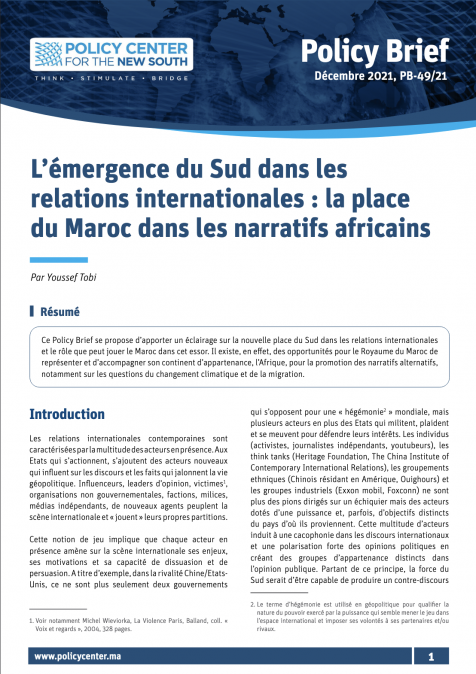Publications /
Policy Brief
This paper was originally published on ecdpm.org
COP27 reached a breakthrough agreement on a new loss and damage fund for vulnerable countries and opened the door for a review of the international financial architecture. Ahead of COP28 at the end of 2023, the AU-EU partnership can help drive global climate change and energy transition agendas forward. A fruitful collaboration between the two continents starts with the following:
• Africa and Europe must find common ground to maximise the benefits and minimise the costs of combating climate change and the green transition. Both must move from dogmatic positions on renewable energy and fossil fuels to focus on green transition business opportunities.
• Both continents must acknowledge, address and alleviate tensions between Europe and Africa over decarbonisation. Failure to do so will slow the progress of promoting a just energy transition in Africa.
• African and European representatives should avoid the trap of ‘policy signalling’ or ideal-type solutions but focus on delivering rapid results on climate finance, energy and industrialisation, as well as communicating more effectively on their progress.










